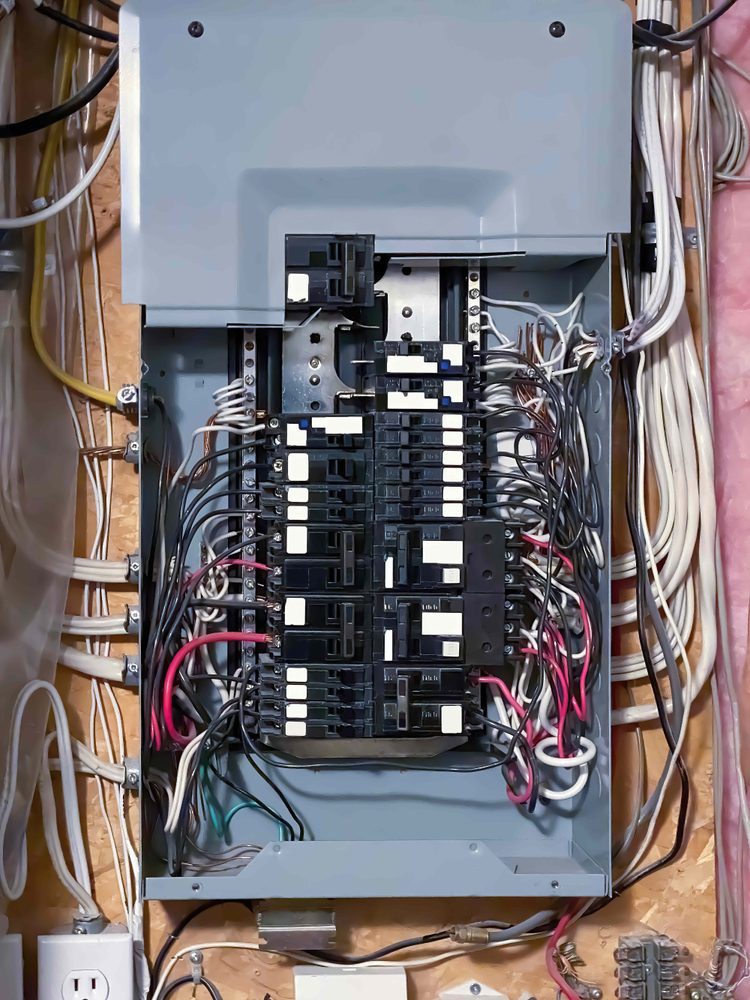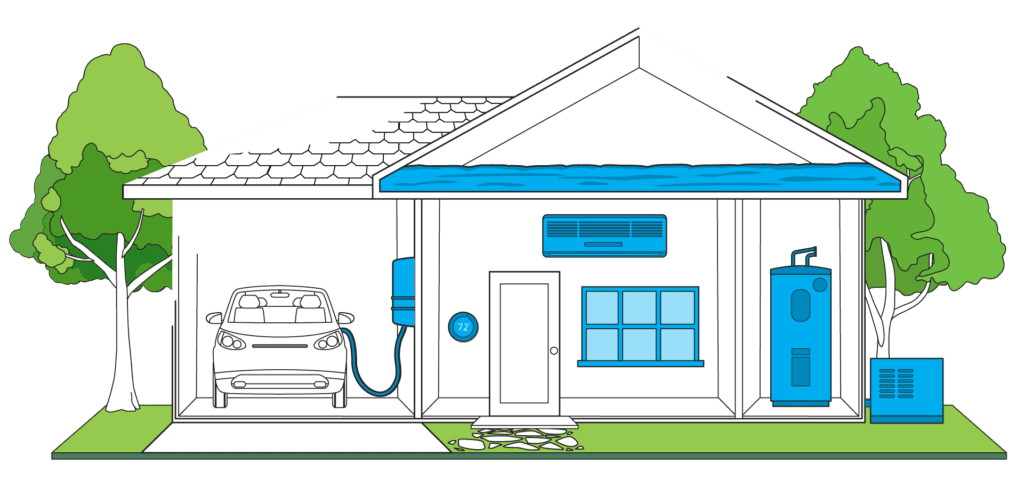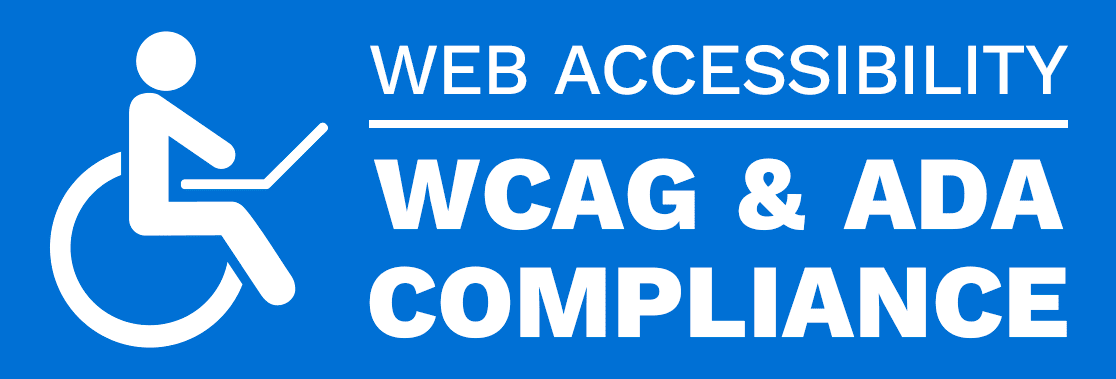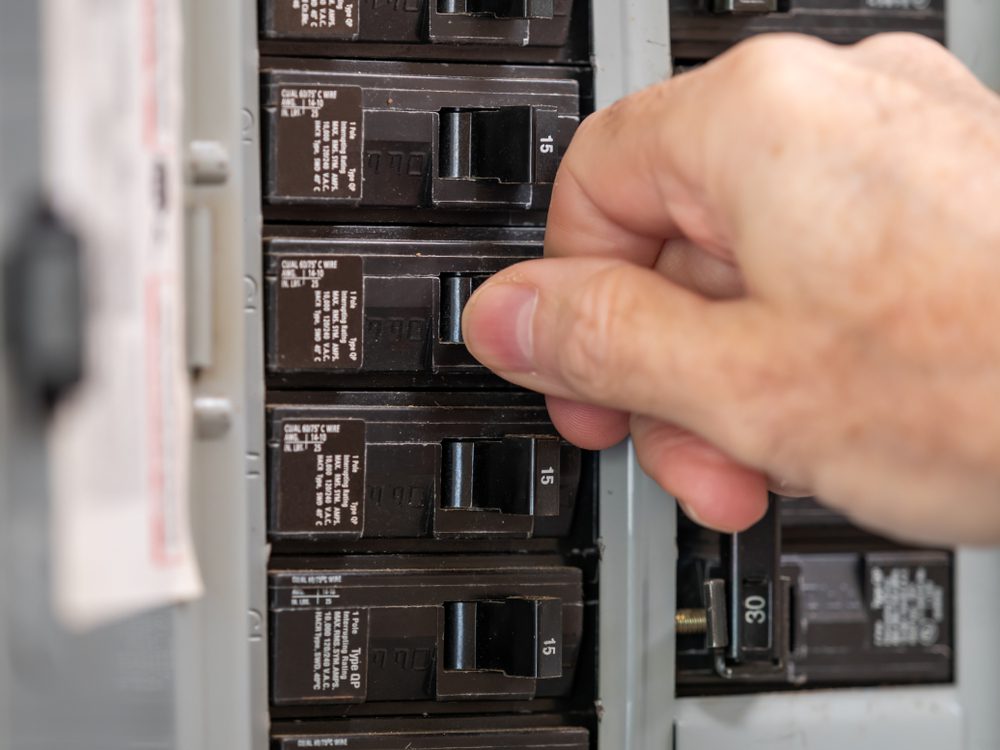Do You Know the Ins and Outs of Your Breaker Box?
We first need to know the function of a breaker box in our home. The electrical systems in our homes can seem like a complex web of wires and gadgets, but at the center of it all lies a crucial component – the breaker box. This box, which may also be called a circuit breaker panel, is the control center for the electrical services in your home. It receives and distributes power to your appliances, lights, and other electrical components. The breaker box is the foundation of your home’s electrical system, making it important for reliable and safe electricity. An electrical inspection is critical whether you’re buying or selling a home.
Prevent and Protect Against Potential Electrical Fires
Why do breakers commonly trip? Breakers usually trip because of overloading. The breaker trips when the electrical circuit exceeds its rated amperage, protecting and preventing a potential electrical fire. Using multiple appliances simultaneously or a single device can cause excessive energy. Short circuits are another common cause of breaker trips, which happen when a hot wire contacts a neutral or ground wire. While it can be frustrating when a breaker trips, remember that it’s working to keep you and your home safe.

Power Out? Tell the Difference Between Fuses & Breakers
Understanding the difference between a tripped breaker and a blown fuse ensure the safety and efficiency of your electrical system. When a circuit overloads, the breaker in your box trips, causing the switch to flip to the “OFF” position. It disengages the circuit, preventing further electrical flow and protecting your devices and home from damage. On the other hand, a blown fuse occurs when the metal inside the fuse melts due to an overload. Once this happens, the flow of electricity gets cut off, and you will need to replace the fuse. Knowing how to differentiate between a tripped breaker and a blown fuse can save you time and money and reduce frustration with your electrical system.
Circuit Breaker Won’t Reset? We Have The Solution!
When a circuit breaker doesn’t reset, it can be frustrating and potentially dangerous. Not being able to turn on lights or use appliances can disrupt your daily routine and even put your safety at risk. When faced with this issue, stay calm and take action by reaching out to professional electrical services. A certified electrician can recognize the problem and offer a secure and efficient resolution, guaranteeing the proper functioning of your home’s power and electrical systems. So the next time you encounter a circuit breaker that won’t reset, don’t hesitate to call an electrical services expert.
Delmarva Inspections Group Has You Covered For Your Next Electrical Inspection
When it comes to electrical repairs, we do not recommend a DIY fix unless you have the necessary know-how and experience. The breaker box is one area that should be off-limits for DIY enthusiasts. Trying to troubleshoot and repair a faulty breaker box without the proper expertise can lead to further damage or even injury and put your home and loved ones at risk. Take your time with one’s electrical system – trust the professionals to handle any necessary repairs or maintenance to ensure your safety. If you need an electrical inspection, home inspector Delmarva Inspections Group has you covered

Protect Your Family: Learn About Common Safety Hazards From Circuit Breaker Box
Are you worried about your family’s safety in your home but don’t know where to start? Familiarizing yourself with potential hazards from everyday objects is integral to making sure that every corner of your house is secure and safe for everyone. One key area many homeowners overlook is the circuit breaker box — this small appliance may appear innocuous at first glance. Yet, if not maintained adequately, it can lead to serious injury. A professional electrical inspection will point out five common safety hazards you need to know:
Overloaded Circuits
An overloaded circuit is one of the most common safety hazards from a breaker box. It occurs when a single circuit becomes overloaded with too many appliances connected, leading to excessive heat and potentially triggering a fire. To prevent this, plug each device into its dedicated circuit.
Exposed Wires
Exposed wires can be another dangerous safety hazard from a breaker box. If exposed wires come in contact with metal or other conductive materials, they can create a short circuit, resulting in an electrical shock or fire. To reduce this risk, inspect your breaker box regularly and ensure all wiring is properly insulated and secured away from metal surfaces. If you have concerns, have a professional electrical inspection.
Faulty Breakers
Faulty breakers can also be a safety hazard from a breaker box. If a breaker fails to trip when it should, it could overload the circuit, potentially leading to an electrical fire. To avoid this situation, regularly inspect your circuit breakers to confirm proper functionality and promptly replace any defective ones.
An Improperly Installed Circuit Breaker Box
Another standard safety hazard from a breaker box is improperly installed circuit breakers. Incorrect breaker installation can cause loose or disconnected wiring, potentially resulting in sparks and fires. It’s essential to have your breaker box inspected by a qualified electrician if you suspect any issues with its installation or operation.
Loose Connections
Finally, loose connections can also be a safety hazard for a breaker box if left unchecked for too long. Loose connections can create sparks and arcing if addressed slowly enough, leading to fires or shocks. It’s great to inspect all connections regularly and tighten them as necessary to ensure proper operation of your breaker box. And remember, an electrical inspection is only a phone call away.
Preventive Maintenance for Maximum Lifespan
Preventive maintenance ensures the equipment we use daily functions correctly. In the case of breaker boxes, preventative maintenance can significantly extend their lifespan. A breaker box is at the heart of your home’s electrical system; the consequences can be catastrophic when it fails. With proper preventive maintenance, we can almost completely eradicate the probability of such failures.
Periodically have your breaker boxes inspected by a professional to ensure the correct functioning of all components. They will tighten connections and dust/clean parts regularly to prevent overheating, which can cause premature component failure. Small proactive maintenance steps like these can add years to the life of a breaker box, ensuring that your home stays safe operating for years to come.
Consider Replacing Your Outdated Breaker Box
Take note: If your home has breakers that are more than 15 years old, you may be at risk for potential fire hazards and electrical shock. Outdated breakers are prone to malfunctioning and not tripping correctly, which can cause dangerous power surges. To put your mind at ease and protect your household, consider replacing those outdated breakers with newer, more reliable ones. The investment will provide increased safety and greater peace of mind, knowing that your electrical system is functioning as it should.
Call For an Electric Inspection Today!
For much better preventive maintenance, we highly recommend having a professional electrical inspection of your breaker box every five years. This inspection will guarantee that everything is working correctly and that no potential hazards are lurking in the wiring. It’s always better to be safe than sorry, and inspecting your breaker box could save you from a dangerous situation. So, if it’s been a while since your last electrical inspection, get started. Call a professional and schedule an appointment today!
Find Out The Safe Load For Your Electrical Circuit
Many homeowners ask how much draw is safe to run from one circuit. When determining how much draw is safe to run off of one course, consider the size of the breaker switch. This switch protects your circuits from overheating and causing fires. You should be at most 80% of your breaker’s capacity to avoid potential danger. It’s always best to play it safe and consult a professional electrician if you need clarification on the ability of your circuit.
Delmarva Inspection Company – Your Trusted Electrical Inspection Company
Experiencing a power outage or faulty electrical wires can be frightening and dangerous, and that’s why following the proper safety guidelines when dealing with breaker boxes is so important. Awareness of any potential hazards of these electrical switches prevents disasters and avoids personal injury. This post has enlightened you on ways to spot safety issues with your breaker box, introduced you to breaker box maintenance guidelines, and explained best practices for avoiding dangerous situations with breaker boxes.
The most important thing to remember is that handling breaker boxes should never be taken lightly. It doesn’t have to feed into a sense of fear either – there are plenty of simple steps you can take so long as you stay aware and alert when dealing with anything related to electricity. If you’re uncomfortable managing the situation, contact an expert for help. An experienced electrician will be able to get the job done safely, quickly, and correctly – just give us a call today for your electrical inspection.


















